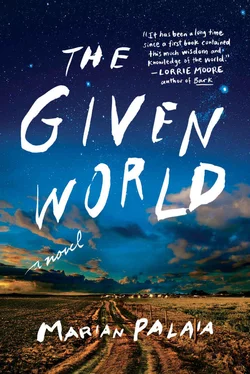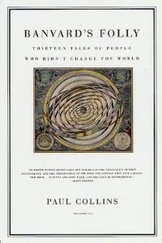The eighties, blessedly, took with them the carnage of boys dying by the thousands on Ward 5B. Some nights, though, I can’t help picturing the white coroner’s vans making their way from the hospital to the morgue downtown, past this very block. I imagine processions, van after van, each containing one body only, though back then they could probably have — and maybe sometimes needed to — fit three to a gurney. I see tiny gold hoop earrings, meticulously placed and unostentatious in right ears. Hair perfect, streaked, coiffed, still. Things my unruly hair has never been. Of course Christopher and Max are okay, and Eddie, by some miracle. This generation of boys has surely learned how to play it safe, not kill themselves and each other in the name of love, or its likeness.
They have taken me back at the bar, again, so there is that familiarity; something of a comfort. I go in four days a week, on the bus, which lets me off on Bayshore at the bottom of Cortland. From there I can walk, or wait for a different bus, but it hardly ever seems to come. The hill is steep and long, and after I climb it, most days, I am light-headed but clear. A fancy coffee shop has just opened where Ellsworth comes down off the heights, and if I am not running late, I’ll stop in for a cup and a bagel or a scone, pretend I am one of those self-possessed San Franciscans not paralyzed by a simple question like “Room for cream?” The first time someone asked me that, I had no idea what she was talking about.
The bar feels both cozy and cavernous before I open, before I turn up all the lights and open the front door, and I like it quite a lot that way. Many days I catch myself wishing there was some way to actually avoid opening, because if I could do that, people wouldn’t come in and want things, even though wanting things is fine, but they also want to talk, and that part really isn’t. The problem is, I have forgotten how to chat up the clientele. My mouth simply doesn’t work that way anymore.
Before I left, I was good at it. Now it is a shock every time my mouth opens to let out something resembling coherent English. I have to believe that eventually I will stop hearing everything I say echo back, strange and brittle, but, for now, it is almost as if someone else is talking, using my voice without permission.
“What can I get you? Anchor Steam? Sure. That’ll be three dollars, please.”
“I’m sorry, you can’t play your guitar in here, but there’s a garden out back where you can, if no one objects.”
“Nope, no babies allowed. Twenty-one and over. Twenty-one years .”
One day a customer drops to the floor after she’s had a couple of beers, starts doing push-ups and accompanying herself loudly: “You had a good home, but you left. You’re right! Jody was there when you left. You’re right! Your baby was there when you left. You’re right!”
For a minute I am so stunned I don’t know what to do, until a beer glass I’m holding breaks from being held too tightly. I lean over the bar.
“Hey. Hey! Get off the floor. Stop that. Now!” A handful of customers have been standing around staring; they all step back when I raise my voice. The girl pauses, resting on her forearms, and looks up.
“What’s your problem?”
“I,” I tell her, “do not have a problem. You, on the other hand, have five seconds to sit your ass on a bar stool, quietly, or you’re out of here. Got it?” I see her think about arguing. “Now. Time’s up.”
She removes herself from the floor, drains her beer, scowls briefly at me, and slams out into the cold. I wash the blood off my hand and bandage it. I have to wear gloves, now, to wash glasses. I hate those gloves — that rubbery, confined feeling.
The rest of the day, I replay over and over the tape of me saying “Now” and “Stop” and “Ass on bar stool.” It sounds okay, like I actually was the one in control. I suppose there will be more of these moments, and even when I still feel the need to test them for legitimacy, that will be a safer bet for sure than just coming completely unhinged and throwing heavy things at breakable other things. I do not replay the glass shattering in my hand or the stone panic I felt listening to the cadence of that marching song.
At first, at home, I can only rarely bring myself to leave my room. In the evenings when I’m not working, I can hear Max, in his chattering splendor, talking about his clients at Saks and their idiosyncrasies and demands and how utterly gorgeous they look when he is done dressing them.
Christopher’s voice is too soft to make out individual words, and sometimes Max will lower his voice as well, so that I imagine they are talking about me, but hope I am not so self-absorbed as to think they don’t have other things to discuss. For one thing, they are so obviously in love, and when I do brave a trip to the living room and perch on the edge of the leather sofa, I find them sitting close together, hand in hand, watching Absolutely Fabulous or I Love Lucy or The Avengers and laughing, the cat spread-eagled and still — a great, furry, overstuffed bit of taxidermy, being stroked and petted by one or both of them, her tail wrapped like Cleopatra’s snake around a compliant arm.
Mornings, I generally don’t come out until both boys have left: Christopher early for his office job downtown and Max, later, for the store. Before Max gets in a taxi at ten or so, he watches game shows on the TV and primps for his customers. With those cheekbones and pale eyes and incredible eyelashes, he is really more beautiful than handsome, in a totally Greta Garbo sort of way.
I don’t mean to avoid him. I want to go out and watch The Price Is Right with him and listen to him gossip about the women he waits on, or talk about the silly things people keep in their pockets and their handbags — hoping Bob Barker will ask for, say, a hard-boiled egg or dog tags or a thermometer — but for a long time I just can’t do it. I try to identify the cause and think maybe it is because he is just a little too vivid for me right now, a little too alive. My head is still full of Vietnam, in black and white, and I can’t change it. Max, on the other hand, is Technicolor in a big way.
Christopher is much less present, much less daunting. On Saturdays, when he doesn’t have to work and Max does, I hear him whistling in the kitchen, always something classical and unthreatening. After a few weeks of sneaking around the house when the two of them are sleeping or out, putting my hand on the doorknob when they are here and awake, but not having the nerve to turn it, and wishing I was more like Eddie — who would have been sitting on the couch petting Annabelle and eating popcorn with them the first night — Christopher’s whistling lures me out. He is in the kitchen making tea, Annabelle on the counter watching him as he stirs it, and they both manage to not look surprised to see me. I wonder how the cat has gotten up there — surely she has not jumped — and imagine Christopher giving her a gentle boost, and the image makes me smile.
“Like some?” Christopher says, motioning to a tin of Earl Grey. Something barely identifiable but utterly perfect happens: a sudden transfer, another new and unimagined country heard from. I’m not really a tea drinker, but the whole idea seems so civilized, so much like what normal people do somewhere in the real world.
“That would be wonderful.”
I sit at the kitchen table while he makes it and brings it to me, along with the little white cow-shaped milk pitcher, sugar and a spoon. The cat watches, metronomically switching her tail across the counter. I pour the milk; watch it spiral cloudy in the cup as I stir it. Christopher leans against the counter and looks out the window. It was raining earlier, but the sky is clearing and the sun is high and bright. Me and the cat watch it streak across the floor.
Читать дальше












